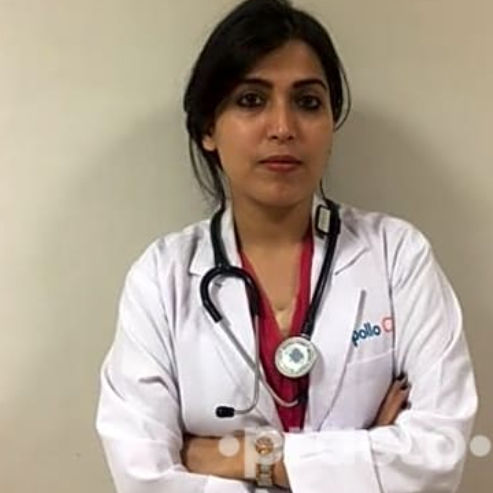Welcome User
Relevance
(26 doctors)

Dr. Anand Ravi
General Physician
2 Years • MBBS
Bengaluru
PRESTIGE SHANTHINIKETAN - SOCIETY CLINIC, Bengaluru

Dr. Akhila Hb
Paediatrician
10 Years • MBBS, MD ( PAEDIATRICS), Fellowship in Asthma and Allergy
Bengaluru
Apollo Medical Center, Marathahalli, Bengaluru
(50+ Patients)

Dr. Ritika Bhatt
Ent Specialist
14 Years • MBBS, MS - ENT
Bengaluru
Apollo Clinic, Sarjapur Road, Bengaluru
(75+ Patients)

Dr. Athira Raj
Ent Specialist
6 Years • MBBS , MS ENT
Bangalore
Apollo Clinic Bellandur, Bangalore

Dr. E Prabhakar Sastry
General Physician/ Internal Medicine Specialist
40 Years • MD(Internal Medicine)
Manikonda Jagir
Apollo Clinic, Manikonda, Manikonda Jagir
(150+ Patients)

Dr. Suresh G
General Physician/ Internal Medicine Specialist
25 Years • MBBS, MD
Bangalore
Apollo Clinic Bellandur, Bangalore
(225+ Patients)

Dr. Dershana P Rajaram
Obstetrician and Gynaecologist
35 Years • MBBS, DGO
Bangalore
Apollo Clinic Bellandur, Bangalore

Dr. Mary Susan K S
General Physician/ Internal Medicine Specialist
13 Years • MBBS, MD INTERNAL MEDICINE
Bengaluru
Apollo Clinic, Sarjapur Road, Bengaluru
(25+ Patients)

Dr. Bhethala Sharan Prakash
General Physician/ Internal Medicine Specialist
5 Years • MBBS MD
Bengaluru
PRESTIGE SHANTHINIKETAN - SOCIETY CLINIC, Bengaluru

Dr. Alagesan Chandran A
General Physician/ Internal Medicine Specialist
37 Years • MBBS, MD General Medicine
Bengaluru
Apollo Clinic, Sarjapur Road, Bengaluru

Dr. Asmath Buchi Babu
General Physician/ Internal Medicine Specialist
46 Years • "MBBS,MD(General Medicine) "
Manikonda Jagir
Apollo Clinic, Manikonda, Manikonda Jagir
Dr. M Arif Ahmed
Allergist And Immunologist
40 Years • MBBS, MD, DCH
Hyderabad
Apollo Cradle, Jubilee Hills, Hyderabad

Dr. Anupriya C
General Physician/ Internal Medicine Specialist
5 Years • MBBS, MD, General Medicine
Bengaluru
Apollo Clinic, JP nagar, Bengaluru

Dr. Tanmaya Kumar Sahu
General Physician/ Internal Medicine Specialist
12 Years • MBBS, MD ( Internal Medicine )
Bhubaneswar
Apollo Hospitals Old Sainik School Road, Bhubaneswar
(25+ Patients)

Dr G Prathyusha
General Physician/ Internal Medicine Specialist
6 Years • MBBS DNB (Family medicine), CCEBDM (Diabetology), PGDGM (Geriatrics), Primary care Rheumatologist.
Bengaluru
PRESTIGE SHANTHINIKETAN - SOCIETY CLINIC, Bengaluru
Allergy and Immunology
Booking an appointment with a top allergist and immunologist is now easier than ever with Apollo 24|7. Our user-friendly platform allows you to schedule online or phone consultations with trusted specialists at your convenience. With a wide network of experienced allergists and immunologists across India, you can access quality care from the comfort of your home or at a nearby Apollo hospital or clinic. Our specialists are committed to providing personalised treatment plans to help you manage your allergies, asthma, and immunologic disorders effectively. Take the first step towards better health and book your appointment with an allergist and immunologist at Apollo 24|7 today.
What is Allergy and Immunology?
Allergy and immunology is a medical specialty focused on diagnosing, treating, and managing disorders related to the immune system. This field examines how the immune system reacts abnormally to certain substances, leading to allergies, asthma, and other immune-related disorders.
Allergists and immunologists help patients manage a wide range of conditions, from common issues like allergic rhinitis and eczema to more complex conditions such as drug reactions, food allergies, and autoimmune diseases. As a crucial aspect of healthcare, this specialty not only aims to improve individual patient care but also enhances public health by managing and preventing allergic and immunological disorders.
Who is an Allergist and Immunologist?
An Allergist and Immunologist is a physician specialised in the prevention, diagnosis, and treatment of problems pertaining to the immune system. These specialists, often referred to as an allergy doctor and immunology doctor, are experts in managing a wide range of conditions such as allergic reactions, asthma, eczema, and immune deficiency ailments.
To become an allergist or immunologist, a doctor must complete an additional two to three years of training in an allergy and immunology fellowship program after finishing medical school and a residency. This rigorous training equips them with the expertise needed to effectively treat and manage complex immunological disorders, making them pivotal in enhancing patient health outcomes.
What Does an Allergist and Immunologist Do?
An allergist and immunologist specialises in diagnosing, managing, and treating disorders that affect the immune system and allergies. Their expertise covers a broad range of conditions, from mild allergies to severe immunodeficiency, making them integral to patient care in these areas.
Key Responsibilities:
Diagnosis: They perform detailed assessments, including skin tests, blood tests, and exposure tests, to identify specific allergies or immune disorders.
Treatment Planning: Based on diagnostic results, they develop personalised treatment plans that may include medication, immunotherapy (allergy shots), and lifestyle adjustments.
Management of Allergic Reactions: As an allergy and asthma doctor, they provide immediate care for acute allergic reactions and chronic management for conditions like asthma and eczema.
Patient Education: Educating patients and their families on how to manage allergies and immune conditions is a critical part of their role. This includes advising on diet, environmental modifications, and prevention strategies.
Research and Advocacy: Many are involved in research aimed at understanding more about immune and allergic processes and developing new treatments. They also advocate for patient access to necessary care and education about these conditions.
Daily Activities:
Consultation: Conducting patient consultations to discuss symptoms and review medical histories.
Follow-ups: Regularly monitoring patients' progress and adjusting treatments as necessary.
Emergency Care: Providing urgent care for severe allergic reactions or exacerbations of chronic conditions.
Collaboration: Working closely with other healthcare professionals to ensure a comprehensive approach to managing immune-related illnesses, a role vital for an immune system doctor.
By offering targeted and effective treatments, allergists and immunologists play a vital role in improving the quality of life for individuals suffering from allergies and immune system disorders.
What are the Other Sub-specialities of Allergy and Immunology?
Allergy and Immunology encompass several sub-specialities that focus on specific disorders affecting the immune system and allergic responses. Here’s a breakdown of the main sub-specialities within this field:
Pediatric Allergy and Immunology: This sub-speciality deals with allergic and immunologic diseases in children, from infancy through adolescence. Paediatric allergists diagnose and treat conditions like asthma, eczema, and food allergies, tailoring care to the unique needs of young patients.
Clinical Immunology: Focused on the diagnosis and management of immune system disorders such as primary immunodeficiency diseases. Clinical immunologists often work in collaboration with other specialists to provide comprehensive care.
Allergy and Asthma: Specialists in this area focus on diagnosing and treating asthma and related allergic conditions. They develop management plans that often include long-term strategies to reduce symptoms and improve quality of life.
Immunotherapy: This treatment involves desensitising the body to allergens by gradually increasing exposure. It’s used primarily for allergies such as pollen, pet dander, and bee venom.
Allergic Rhinitis and Sinusitis: Experts manage the symptoms and underlying causes of nasal allergies and inflammation of the sinuses, which often involve environmental triggers.
Food Allergy: These specialists diagnose and treat food allergies, developing dietary plans and emergency interventions to manage reactions.
Eosinophilic Disorders: This area focuses on diseases characterised by elevated levels of eosinophils in the body, such as eosinophilic oesophagitis, which affects the digestive system.
Insect Allergy: Specialists provide treatment for allergies caused by insect stings, including bees, wasps, and ants, offering both acute care and preventive strategies.
Autoimmunity: This sub-speciality deals with conditions where the immune system attacks the body’s own tissues, including lupus and rheumatoid arthritis. Treatment focuses on suppressing the immune response and managing symptoms.
Transplant Immunology: Involves managing and preventing immune reactions in organ transplant patients, ensuring the body accepts the transplanted organ.
These sub-specialities underscore the broad scope of care provided by specialists in this field. An Allergy doctor focuses on a wide array of allergic diseases, while an immune doctor is pivotal in treating complex immunodeficiencies and autoimmune disorders. Each sub-speciality enhances our understanding and management of these complex conditions, contributing to better patient outcomes and advancements in medical science.
What are the Allergy and Immunology Examinations or Tests Performed by the Allergist and Immunologist?
In the field of allergy and immunology, various diagnostic tests are essential for identifying specific allergens and understanding immune responses. Here are some of the most common examinations performed by these specialists:
Skin Prick Test: This is one of the quickest and most common tests to identify immediate allergic reactions to multiple substances. The test involves placing a tiny amount of the suspected allergen on the skin, usually the forearm, and then pricking the skin so the allergen goes under the surface.
Blood Test (Specific IgE Test): Used to measure the amount of IgE antibodies in the blood in response to specific allergens. This test helps to confirm or rule out potential allergens causing symptoms when skin testing is not possible.
Patch Test: This test identifies delayed allergic reactions, which may take several days to develop. Allergens are applied to patches, which are then placed on the skin for up to 48 hours, monitored for reactions.
Pulmonary Function Tests (PFTs): These tests are used to assess lung function and are particularly important for patients who might have asthma as part of their allergic profile.
Oral Food Challenge: Considered the gold standard for diagnosing food allergies, this test involves consuming small amounts of a suspected allergen under medical supervision to monitor for allergic reactions.
Component-Resolved Diagnostics: A sophisticated blood test that helps distinguish between different proteins in an allergen, helping to pinpoint the specific cause of an allergy.
If you suspect you have an allergy or an immune-related issue, you might want to book an allergist or book an immunologist. These specialists are equipped with the expertise and tools to perform these tests and provide you with a comprehensive diagnosis and tailored management plan. Seeking the advice of an allergy doctor can help you understand your condition and guide you towards effective treatments.
What are the Common Conditions & Diseases that Allergists and Immunologists Treat?
Allergists and immunologists address a wide range of conditions related to allergies, immune system malfunctions, and autoimmune diseases. Here are the top 15 conditions they commonly treat:
Allergic Rhinitis (Hay Fever): Inflammation of the nasal passages caused by airborne allergens like pollen, dust, and pet dander.
Asthma: A chronic condition where the airways become inflamed and narrow, leading to wheezing, breathlessness, and coughing.
Eczema (Atopic Dermatitis): A condition causing itchy, red, swollen, and cracked skin.
Food Allergies: Adverse immune responses triggered by specific foods, potentially causing severe reactions.
Urticaria (Hives): A skin reaction featuring red, itchy welts, often triggered by allergies.
Angioedema: Swelling beneath the skin, often around the eyes and lips, and sometimes on the hands, feet, and throat.
Drug Allergies: Immune system reactions to medication, which can range from mild rash to severe anaphylaxis.
Insect Sting Allergies: Allergic reactions to the venom of stinging insects such as bees and wasps.
Anaphylaxis: A severe, potentially life-threatening allergic reaction that can affect multiple body systems.
Contact Dermatitis: A skin irritation caused by contact with various substances, including soaps, cosmetics, and poison ivy.
Sinusitis: Inflammation of the sinuses often related to an allergic reaction or infection.
Immune Deficiency Disorders: Conditions where the immune system’s ability to fight infections and diseases is compromised.
Autoimmune Diseases: Diseases where the immune system mistakenly attacks the body’s own tissues, such as lupus and rheumatoid arthritis.
Occupational Asthma: Asthma triggered by inhaling fumes, gases, dust, or other potentially harmful substances while at work.
Latex Allergies: Allergic reactions to latex, which can cause skin irritation, hives, and even anaphylaxis.
Allergists and immunologists play a crucial role in diagnosing, managing, and treating these conditions, focusing on alleviating patient concerns and improving their quality of life.
Reasons to See an Allergist and Immunologist
Consulting an allergist and immunologist is advisable when experiencing persistent symptoms that suggest an allergy or immune system disorder. These symptoms include chronic sneezing, nasal congestion, itchy or watery eyes, recurrent sinus infections, unexplained rashes, or eczema. Individuals who suffer from severe reactions to foods, medications, or insect stings, such as swelling, difficulty breathing, or anaphylaxis, should also seek their expertise.
Additionally, those with difficult to control asthma, or suspected immune deficiencies marked by frequent infections, would benefit from a specialist’s care. For convenience, an online allergist consultation is available to assess allergic reactions, while an online immunologist consultation can help evaluate more complex immune conditions from the comfort of your home.
What Types of Procedures do Allergists and Immunologists Perform?
Allergists and immunologists carry out a range of therapeutic and surgical procedures to manage and treat allergic and immunologic conditions. Below are the top therapies and surgeries performed within this specialty:
Top Therapies:
1. Allergen Immunotherapy: Administers gradually increasing doses of the allergen to build tolerance and reduce symptoms.
2. Drug Desensitisation: Introduces the drug in small doses to build up tolerance in patients with drug allergies.
3. Biologic Therapies: Uses biologic agents to target specific parts of the immune system that contribute to inflammation and disease.
4. Spirometry: Measures lung function to diagnose and monitor asthma and other respiratory conditions.
5. Exhaled Nitric Oxide Test: Measures nitric oxide levels, which are typically elevated in asthma, to evaluate and manage the condition.
6. Patch Testing: Identifies substances causing skin allergies through controlled exposure.
7. Food Challenge Test: Determines food allergies by administering potential allergenic food under controlled conditions.
8. Environmental Control Plans: Involves adjusting a patient’s environment to minimise exposure to allergens.
9. Insect Sting Allergy Management: Includes administering venom immunotherapy to prevent severe reactions in future stings.
Top Surgeries:
10. Sinus Surgery: Addresses chronic sinusitis, often related to allergic rhinitis, not responsive to medication.
11. Tonsillectomy: Sometimes recommended for recurrent throat infections in the context of immune deficiencies.
12. Adenoidectomy: Removes adenoids if they contribute to chronic ear and sinus infections.
13. Immunoglobulin Replacement Therapy: Administers immunoglobulins to patients with immune deficiencies, helping prevent infections.
14. Bone Marrow Biopsy: Performed to diagnose and monitor conditions affecting marrow and immune function.
15. Lymph Node Excision: Helps diagnose and assess the spread of autoimmune disorders.
Understanding these procedures can help patients gauge the allergist fee and immunologist fee associated with each treatment or surgical intervention, providing clarity on the potential costs involved in managing their conditions.
Why Choose an Apollo 24|7 Allergist and Immunologist?
Apollo 24|7 allergists and immunologists are highly skilled and experienced in diagnosing and treating a wide range of allergic and immunological conditions. Our specialists are committed to providing personalised care and utilising advanced treatment options to ensure the best possible outcomes for our patients.
With the convenience of online consultations and seamless access to in-clinic appointments, Apollo 24|7 offers comprehensive healthcare solutions tailored to your needs. Our Allergist and Immunologists work closely with you to develop individualised treatment plans, empowering you to effectively manage your allergies and improve your overall quality of life.
What to Expect When Visiting an Allergist and Immunologist?
When visiting an allergist and immunologist, patients can expect a thorough examination tailored to diagnosing and managing allergic and immunological disorders. Here's what typically happens during a visit:
Initial Consultation: Your specialist will review your medical history, symptoms, and any prior treatments or tests. This discussion helps in forming a preliminary understanding of your condition.
Physical Examination: A physical exam focusing on the skin, eyes, respiratory system, and other areas affected by allergies or immune disorders.
Diagnostic Testing: Depending on your symptoms, tests such as skin prick tests, blood tests for specific antibodies, or lung function tests might be conducted to pinpoint exact allergies or assess immune function.
Discussion of Findings: The allergist will discuss the results and potential triggers identified during testing.
Treatment Plan: You’ll receive a personalised treatment plan, which may include medications, lifestyle changes, or allergen avoidance strategies. For ongoing conditions, long-term management strategies will be outlined.
Follow-Up Arrangements: Scheduling follow-up visits to monitor progress and adjust treatments as necessary.
Patients interested in local services often search for an Allergist near me or an Immunologist near me to find a conveniently located specialist. Before your visit, checking Allergist reviews and Immunologist reviews can also provide insight into the experiences of other patients and help set expectations for your own care journey.
How Can I Get an Appointment With an Allergist and Immunologist?
Booking an appointment with an Apollo 24|7 Allergist and Immunologist is simple and convenient:
Online Appointment: Visit the Apollo 24|7 website, select "Allergy and Immunology" as the specialty, choose your preferred doctor, and book a slot that suits your schedule.
App Booking: Download the Apollo 24|7 app, log in or create an account, search for "Allergist and Immunologist," select your doctor, and book an appointment at your convenience.
Offline Booking: Call the Apollo 24|7 helpline or visit your nearest Apollo hospital or clinic to book an appointment with an Allergist and Immunologist.
FAQs
What does an immunology doctor do?
An immunology doctor specialises in diagnosing, treating, and managing disorders of the immune system. These professionals address conditions like allergies, asthma, autoimmune diseases, and immune deficiencies. They conduct diagnostic tests, develop personalised treatment plans, and provide targeted therapies such as immunotherapy to manage and mitigate symptoms effectively.
How do I know when it's just a cold and not allergies?
A cold usually presents with a cough, body aches, fatigue, and occasional yellow nasal discharge, resolving within one to two weeks. Allergies occur immediately after contact with the allergen and are associated with clear nasal discharge, nasal congestion, itchy eyes, and persistent symptoms as long as the allergen is present. Body aches are unlikely in allergies, but fatigue may occasionally occur.
Is it safe to take over-the-counter allergy medications daily?
While some over-the-counter allergy medications like antihistamines (e.g., Zyrtec, Claritin, Allegra) are generally safe for daily use, others like decongestants (e.g., Sudafed) should be used cautiously due to potential side effects such as elevated blood pressure, heart palpitations, and difficulty sleeping. Consult with a physician before taking any medication regularly.
What is anaphylaxis and how is it treated?
Anaphylaxis is a severe, life-threatening allergic reaction that can occur within minutes or even seconds after exposure to an allergen. Symptoms include a rash, vomiting, diarrhoea, swollen throat, wheezing, passing out, chest tightness, trouble breathing, hoarse voice, trouble swallowing, stomach cramping, and a feeling of impending doom. Treatment involves administering epinephrine via an autoinjector into the anterior thigh muscle, followed by immediate medical attention.
Can adults develop new allergies?
Yes, adults can develop environmental allergies at any age. Asthma can also develop during adulthood. Age-related physical changes or certain medications can sometimes be mistaken for allergies, but true allergic reactions can occur in adults who had no previous allergies.
What are the common foods that trigger severe allergic reactions?
Severe allergic reactions can be triggered by foods such as shellfish, eggs, peanuts, and wheat. These reactions can be life-threatening and require immediate medical attention if symptoms of anaphylaxis occur. It is crucial for individuals with food allergies to carry an epinephrine auto-injector and wear a medical alert bracelet.
Is an immunologist a doctor?
Yes, an immunologist is a medical doctor who has completed additional training in immunology after obtaining a medical degree. They must complete a residency in a relevant field such as internal medicine or paediatrics, followed by a fellowship in immunology, focusing on the immune system and related disorders.
What qualifications do you need to study immunology?
To study immunology, you typically need a medical degree followed by a residency in a related discipline like internal medicine or paediatrics. Afterward, aspiring immunologists undertake a fellowship in immunology, gaining specialised knowledge in immune system disorders. Additionally, a strong background in biology, chemistry, and possibly a research-focused degree can be beneficial.
What is immunotherapy, and how does it work?
Immunotherapy, also known as allergy shots, is a long-term treatment involving regular injections of small amounts of the allergen to build tolerance over time. It is effective for allergies to pollen, dust mites, mould, pet dander, and insect stings. This treatment can significantly reduce symptoms and improve quality of life for those with severe allergies.
Are there any specific considerations for children with allergies?
Children with food allergies, such as an egg allergy, can safely receive most childhood vaccines. However, parents must inform healthcare providers about any allergies to ensure safe vaccination practices. Children with severe allergies may need to wear Medic Alert bracelets to alert emergency responders about their allergies.